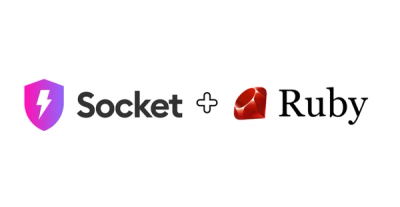
Security News
CISA Extends MITRE Contract as Crisis Accelerates Alternative CVE Coordination Efforts
CISA extended MITRE’s CVE contract by 11 months, avoiding a shutdown but leaving long-term governance and coordination issues unresolved.
@lerna/temp-write
Advanced tools
@lerna/temp-writeNon-ESM fork (with bumped deps) of https://github.com/sindresorhus/temp-write
You probably shouldn't, at least directly.
Install lerna for access to the lerna CLI.
6.0.0 (2022-10-12)
lerna runAs of version 6.0.0, Lerna will now delegate the implementation details of the lerna run command to the super fast, modern task-runner (powered by Nx) by default.
If for some reason you wish to opt in to the legacy task-runner implementation details (powered by p-map and p-queue), you can do so by setting "useNx": false in your lerna.json. (Please let us know via a Github issue if you feel the need to do that, however, as in general the new task-runner should just work how you expect it to as a lerna user).
lerna run caching and task pipelines via the new lerna add-caching commandWhen using the modern task-runner implementation described above, the way to get the most out of it is to tell it about the outputs of your various scripts, and also any relationships that exist between them (such as needing to run the build script before the test, for example).
Simply run lerna add-caching and follow the instructions in order to generate all the relevant configuration for your workspace.
You can learn more about the configuration it generates here: https://lerna.js.org/docs/concepts/task-pipeline-configuration
lerna run with the new task-runner implementationBy default the modern task runner powered by Nx will automatically load .env files for you. You can set --load-env-files to false if you want to disable this behavior for any reason.
For more details about what .env files will be loaded by default please see: https://nx.dev/recipes/environment-variables/define-environment-variables
lerna run with the new task-runner implementationThere are certain legacy options for lerna run which are no longer applicable to the modern task-runner. Please see full details about those flags, and the reason behind their obselence, here:
https://lerna.js.org/docs/lerna6-obsolete-options
lerna repair commandWhen configuration changes over time as new versions of a tool are published it can be tricky to keep up with the changes and sometimes it's possible to miss out on optimizations as a result.
When you run the new command lerna repair, lerna will execute a series of code migrations/codemods which update your workspace to the latest and greatest best practices for workspace configuration.
The actual codemods which run will be added to over time, but for now one you might see run on your workspace is that it will remove any explicit "useNx": true references from lerna.json files, because that is no longer necessary and it's cleaner not to have it.
We are really excited about this feature and how we can use it to help users keep their workspaces up to date.
FAQs
Write string/buffer/stream to a random temp file
The npm package @lerna/temp-write receives a total of 134,210 weekly downloads. As such, @lerna/temp-write popularity was classified as popular.
We found that @lerna/temp-write demonstrated a not healthy version release cadence and project activity because the last version was released a year ago. It has 2 open source maintainers collaborating on the project.
Did you know?

Socket for GitHub automatically highlights issues in each pull request and monitors the health of all your open source dependencies. Discover the contents of your packages and block harmful activity before you install or update your dependencies.

Security News
CISA extended MITRE’s CVE contract by 11 months, avoiding a shutdown but leaving long-term governance and coordination issues unresolved.

Product
Socket's Rubygems ecosystem support is moving from beta to GA, featuring enhanced security scanning to detect supply chain threats beyond traditional CVEs in your Ruby dependencies.

Research
The Socket Research Team investigates a malicious npm package that appears to be an Advcash integration but triggers a reverse shell during payment success, targeting servers handling transactions.